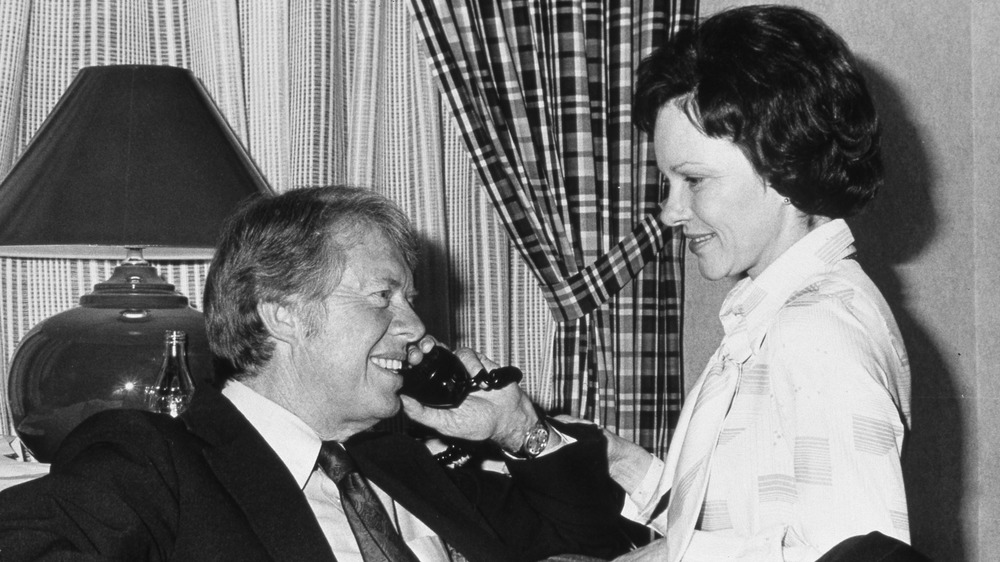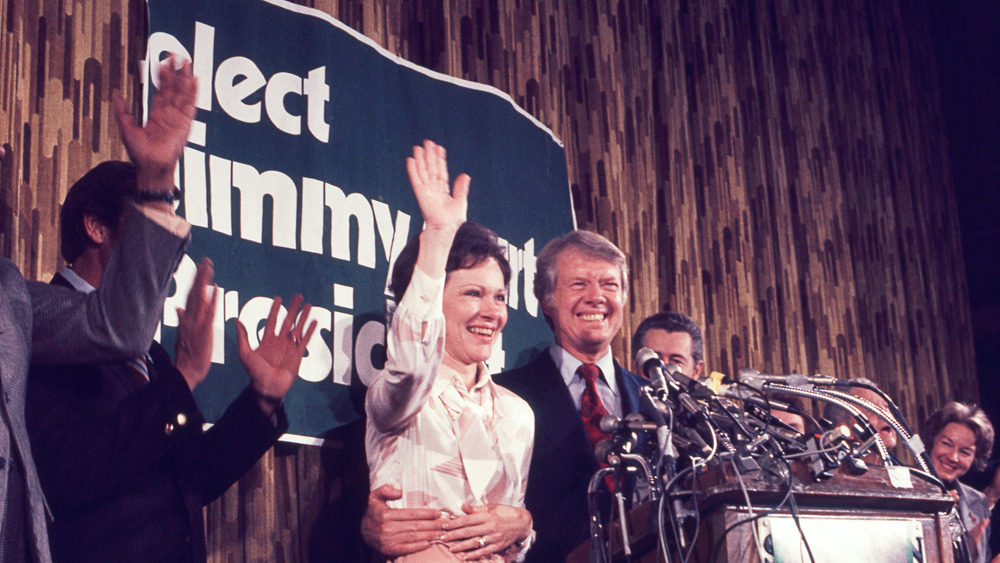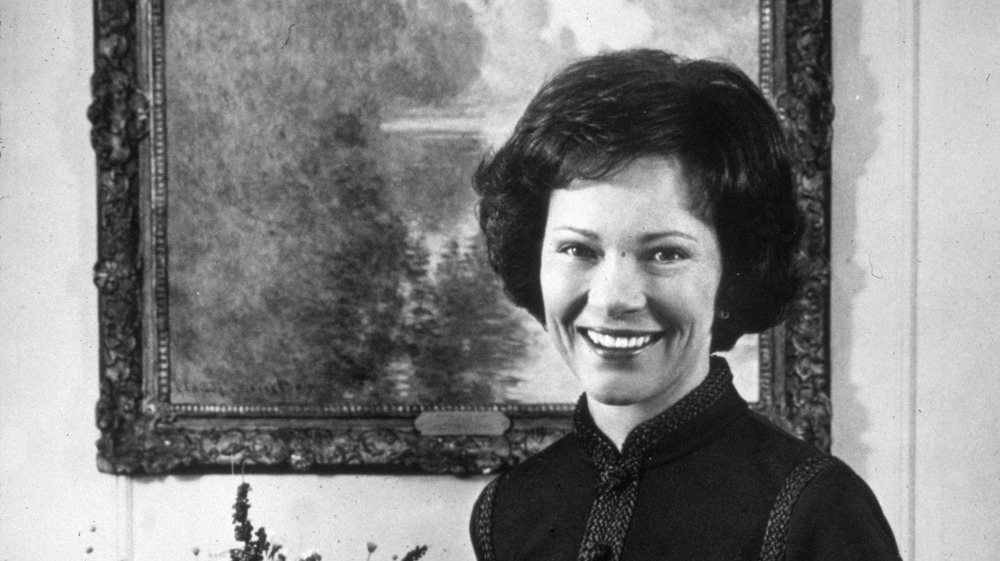What You Didn't Know About Rosalynn Carter
Don't think about Rosalynn Carter as "Jimmy Carter's wife." She is so much more. When Jimmy Carter was campaigning for president, someone warned a reporter that "you can't really understand Jimmy Carter unless you know Rosalynn. She is not only his wife but also his best friend" (via The MacNeil/Lehrer Report). The analysis is particularly poignant as, per what Rosalynn told The New York Times in 1977, "I've never had time for friends, besides, I never was one for coffee klatches."
That's because Rosalynn Carter grew up with work to do. She was born in 1927 on the eve of The Great Depression. Her father, Wilburn, a town councilman, auto mechanic, school bus driver, and store clerk died when she was 13, according to National First Ladies Library. Her mother, Allethea, supported the family as a dressmaker. Rosalynn grew up working at a hairdresser's to save some money of her own. Later, she worked side by side with Jimmy managing the accounts of a family business: a peanut company. Rosalynn once described her life to The MacNeil/Lehrer Report: "We'd come home at night, we'd get up in the morning, we'd go to work. Which is the way I think a lot of people live." When Rosalynn took the reigns of the company, her marriage to Jimmy changed. "It wasn't long before I knew more about the business than he did. So I could give him advice. We learned to respect each other," Rosalynn reflected to Parade.
Less fashion, more politics
Rosalynn Carter did not care much about clothes. She even wore the same dress to her husband's presidential inauguration as she did to his gubernatorial inauguration. Sometimes, she did not even change for formal events. As First Lady, The New York Times noted in fascination that Rosalynn Carter once attended "Mark Twain Tonight!" at the Kennedy Center dressed "in the beige Ultrasuede jumper and navy blouse she had been wearing all day."
But if high fashion wasn't a priority, politics was. Rosalynn Carter was a master campaigner. "Politics has always brought our family close together," she reflected to The MacNeil/Lehrer Report on the campaign trail. While campaigning, The New York Times wrote, fascinated, Rosalynn began her days at 4:30 a.m. in time for factory shift changes. She traveled the country, often alone, giving speeches that she herself had prepared.
The National First Ladies Library will tell you that Rosalynn Carter was the first First Lady to keep an office in the East Wing (where her "Chippendale mahogany kneehole desk" was often decked with fresh flowers, according to The Times). Social events were the least of her concern. Instead, Carter spent the bulk of her time consulting with cabinet members, sitting in on National Security Council briefings, and learning Spanish for her role as personal emissary to Latin American countries (via the White House).
Rosalynn Carter, the mental health advocate
When Parade asked Rosalynn Carter in 2017 what she hoped her legacy would be, Carter replied, "I hope I've contributed something to the mental health field." Contribute she has. As the APA tells it, she began her mental health advocacy in 1966, after a campaign visit to a Georgia cotton mill. There, Carter talked to a woman leaving her shift at work, but unable to rest because she had to care for her mentally ill child.
Improving access to and the quality of mental health services soon became Carter's number one priority. During her tenure as First Lady of Georgia, The New York Times reported that Carter worked tirelessly, attending mental health hearings, helping to open 136 new mental‐health centers, and volunteering at Georgia Regional Hospital. "She'd do anything for patients," one of her fellow volunteers told The Times.
As First Lady, Rosalynn was honorary chair of the President's Commission on Mental Health, which was instrumental to the passage of the Mental Health Systems Act of 1980 (via The Carter Center). Now in her 90s, she remains committed to helping find paths to recovery from mental illnesses. As Carter explained to Fox in 2020, "Millions are still suffering, and it's so sad to me. The stigma is still so bad. So I wanted people to know what I know... It's all biological. The brain, the mind is all part of our body, and we've learned that."


